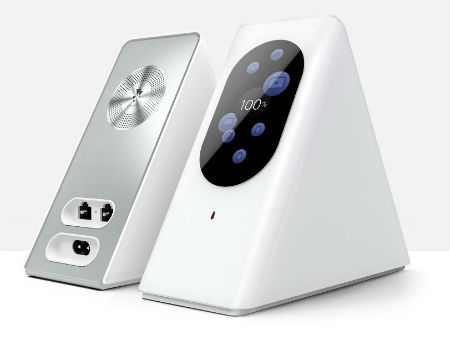Starry's Service Starts at $50 Per Month
The smarter way to stay on top of the multichannel video marketplace. Sign up below.
You are now subscribed
Your newsletter sign-up was successful

Starry, the startup that has developed a competitive broadband service that uses millimeter wave technology, confirmed that a beta version of the service is available to parts of Boston for $50 per month and delivers symmetrical speed of 200 Mbps.
Starry’s Boston-area beta offering, spotted by Light Reading, is being sold without a contract or extra equipment rental fees, and includes a customer care service that will help customers connect devices and troubleshoot WiFi or other issues.
RELATED: Starry Eyes Wireless Broadband Alternative
According to a Starry official, the company is currently focused on the multiple-dwelling unit (MDU) market in Boston, noting that the company has developed versions of the Starry Point, the unit that receives the signal and communications with the Starry Station WiFi hub, that can handle a range of use cases, including large and small MDUs as well as for single-family units.
In the MDU scenarios, Starry is leaning primarily on existing, in-building wiring to connect the Starry Station, though there are some cases in which Starry will do its own wiring, the official noted.
Interested customers can query the Starry site to see if service is available to them. Starry is currently available in parts of Charlestown, Somerville and Cambridge and a handful of other neighborhoods in the Boston area.
“We’re bringing additional neighborhoods online in the next few weeks,” the official said via email, noting that Starry recently made the beta service more widely available.
The smarter way to stay on top of the multichannel video marketplace. Sign up below.
Comcast, RCN and Verizon are among the incumbent broadband providers Starry will likely tangle with in Boston.
Starry is helmed by former Aereo CEO Chet Kanojia.
RELATED: Aereo Auction Raises Less Than $2 Million
According to a recent analysis by MoffettNathanson, Starry’s best shot at disrupting the broadband sector will be by pairing deployments in high-density areas with a low-cost technology platform.
RELATED: Low Costs, Dense Markets Critical to Starry’s Success: Analyst
“On paper, at least, fixed wireless has the potential to be the first low-cost alternative to wired broadband,” the firm explained, noting that AT&T and Verizon are already moving in that direction with 5G-focused trials. Google Fiber is also pursuing wireless as a lower-cost alternative.
RELATED: Google Fiber's Webpass Debuts in Denver
